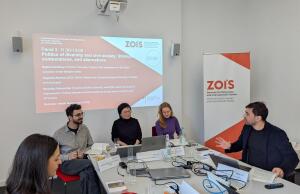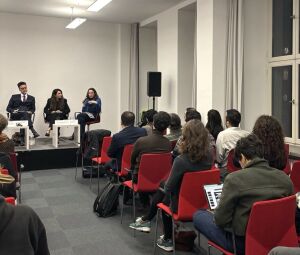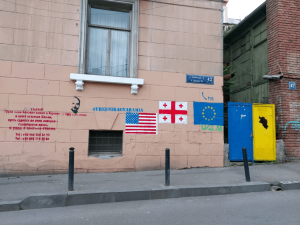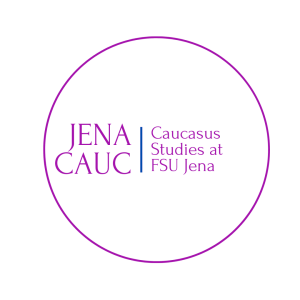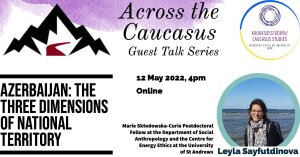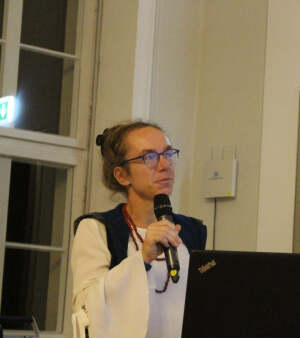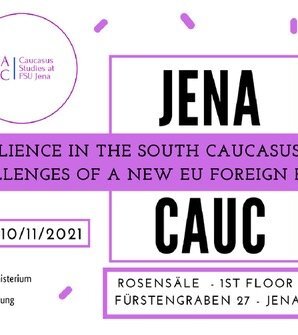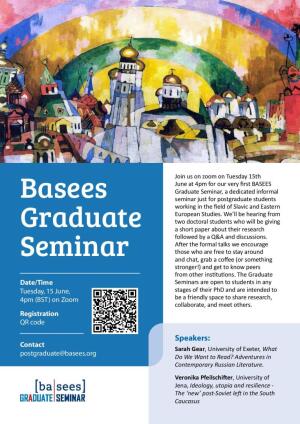Events / News
Workshop
Image: Diana Forker26–27 November 2025: Workshop Geopolitical shifts and domestic reconfigurations in the South Caucasus
Location: Centre for East European and International Studies (ZOiS Berlin)
This workshop brings together researchers, policymakers, and regional experts to examine how ongoing geopolitical shifts are reshaping political, social, and infrastructural developments in the South Caucasus. Over two days, participants explore the region’s evolving relationship with the European Union, the impact of changing global power dynamics on national alliances and major infrastructure projects, and the ways in which civil society, youth, and religious communities navigate increasing autocratization and shrinking civic space. Through panels and a public roundtable, the program highlights both high-level geopolitical reconfigurations and their lived consequences on the ground, offering diverse perspectives on emerging insecurities, contested visions of the future, and potential pathways for more inclusive and strategically coherent engagement in the region.
Workshop programpdf, 152 kb · de
RoundTable
Image: Diana Forker26 November, 2025: Public Round Table in cooperation with ZOiS (Berlin)
The EU and Germany in the South Caucasus: Arising Insecurities and New Visions?External link
This panel explores how recent geopolitical ruptures and the evolving regional power and security order have reshaped the EU and Germany’s positioning in the South Caucasus.
In the context of a scramble for influence by external powers in the South Caucasus, the panellists will discuss Europe’s capacity to act as a stabilising force and mediator in response to the growing illiberalism and geopolitical tensions in Armenia, Azerbaijan and Georgia. Bringing in perspectives from politics, diplomacy and policy analysis, the session will assess the plausibility of the renewed call for a unified EU strategy towards the region and Germany’s contribution in terms of a more structured engagement.
Moderator: Tiffany G. Williams (Friedrich Schiller University Jena)
Speakers:
- Könül de Moor (International Crisis Group, South Caucasus)
- Franziska Smolnik (German Institute for International and Security Affairs)
- Deren Derya (European External Action Service)
- Robin Wagener (Alliance 90/The Greens, Member of the German Bundestag)
This discussion is part of the semi-public workshop 'Geopolitical Shifts and Domestic Reconfigurations in the South Caucasus'. The event is a cooperation between Caucasus Studies at the Friedrich Schiller University Jena and the ZOiS Caucasus Network.
Tbilisi
Image: Veronika PfeilschifterNovember 9-10, 2023: Conference South Caucasus after “Zeitenwende”: Dimensions of translocality and societal change
University of Jena
The conference is organized within the framework of the research project entitled, “Resilience in the South Caucasus: prospects and challenges of a new EU foreign policy concept” (JENA-CAUC), funded by the German Federal Ministry of Education and Research (BMBF). The goal of the conference is to unpack the societal, economic, political, and security-related consequences of Russia’s war against Ukraine for the South Caucasus region, and the transformational changes taking place in the region since the war. A Keynote by PD Dr. Tsypylma Darieva from the Centre for East European and International Studies (ZOIS), will open the conference, and it will end with a Round Table discussion on South Caucasus after the “Zeitenwende”
The conference will be held on-site. For further information please visit our Facebook page or write an email to jenacauc@uni-jena.de
Jena-Cauc
Image: Veronika PfeilschifterNovember 3-4, 2022: Conference Bouncing back or moving forward? Contextualizing “Resilience” in the South Caucasus
Tbilisi State University
The conference is organized within the framework of the research project entitled, “Resilience in the South Caucasus: prospects and challenges of a new EU foreign policy concept” (JENA-CAUC), funded by the German Federal Ministry of Education and Research (BMBF). The goal of the conference is to advance the understanding of the resilience concept and its practical application within the context of the South Caucasus. A Keynote by Professor. Elena Korosteleva from the University of Warwick (https://warwick.ac.uk/fac/arts/schoolforcross-facultystudies/igsd/about/people/ekorosteleva/External link), will open the conference, and it will end with a Round Table discussion on regional, national and European identity in the South Caucasus.
The conference will be held on-site. For further information please visit our Facebook page or write an email to jenacauc@uni-jena.de.
Conference flyerpdf, 71 kb · de
Olson
Image: Hasmik GhazaryanRussia’s War in Ukraine: Perspectives from the South Caucusus
First published in New Eastern Europe, Analysis, Issue 3, 2022.
Authors: Bidina Lebanidze, Irena Gonashvili, and Veronica Pfeilschifter
In the aftermath of the Russian invasion of Ukraine and following the adage ‘if it bleeds, it leads’ the world, particularly Western Europe, was plastered with news from that war-stricken country. Indeed, as the unfolding events were scrutinised with a fine comb; perspectives from other post-soviet countries were also thrust into the spotlight.
The team at Jena-Cauc analysed the reactions of three countries from the South Caucus, namely Georgia, Armenia, and Azerbaijan, and that of the 3 de facto South Caucasian states of Abkhazia, Nagorno-Karabakh, and South-Ossetia, to the Russian invasion as well looking into the motivations and interests behind the same. Despite each of the three countries following an independent strategy with regards to Russia, one common theme was their reluctance to sanction Moscow. The reticent approach by Baku, Tbilisi, and Yerevan serves to underscore their vulnerability and security concerns vis-a-viś the Russian state. By far the most positive responses from the region were observed in the Russia dependent de facto states of Abkhazia, Nagorno-Karabakh, and South-Ossetia.
For the complete analysis of the situation, please go to: https://neweasterneurope.eu/2022/04/25/russias-war-in-ukraine-perspectives-from-the-south-caucasus/?fbclid=IwAR1QIDy_W4ZKiN3fYALELl5umCFAXRvgUnKHsAafib5ISYCqrRRiu73OTqIExternal link
Flags of the member states of the European Union in front of the EU-commission building "Berlaymont" in Brussels, Belgium
Image: Christian LueCarnegie Europe: Does the EU Need a New Enlargement Policy?
Against the backdrop of the ongoing Russian invasion of Ukraine Dr Bidzina Lebanidze, principal investigator at Jena-Cauc, contributed to Judy Dempsey’s ‘Strategic Europe’ on the question of EU enlargement.
Dr Lebanidze argued that EU enlargement, especially in the light of the current Russian invasion, has transformed from a purely technocratic exercise to a broader geopolitical process. This holds especially true for the associate states of Georgia, Moldova, and Ukraine. However, Brussels should eschew any compromise of the Copenhagen criteria and instead of granting fast-track membership to Georgia, Moldova, and Ukraine should focus on using democratic and acquis conditionality as its main instruments. Although sectoral integration into the European system is hardly a substitute for EU membership, it could serve as stepping stones towards joining the Union for the aforementioned countries. For example, acquiescing to a form a labour mobility for these three countries would incentivise ascension into the European fold while simultaneously binding them to the European apparatus.
For the complete statement, go to: https://carnegieeurope.eu/strategiceurope/87114?fbclid=IwAR2P6CIlAedPv4pOC0ttqJMtEh3dJXlm8AETUtZHAkoNyn07o8xijaITK1wExternal link
Guest Talk with Dr Leyla Sayfutdinova
Image: Jena-Cauc TeamAzerbaijan: The Three Dimensions of National Territory
May 12th 2022, 1600 Hrs (CET), Zoom Webinar
In the first webinar of the ‘Across the Caucus Guest Talk Series’ we were joined by Dr Leyla Sayfutdinova, who is a Marie Curie Post-Doctoral Fellow at the University of St Andrews. Her current brainchild is a research project titled ‘Turning Oil into Stone: Oil Legacies in the Narratives of Urban Continuity and Change’ and is an interdisciplinary research approach that reconciles various themes such as nationalism, urban change, post-socialist industrial transformation, and the transformation of the post-Soviet sphere. During the course of her talk, Dr Sayfutdinova explored the dimensions of national territory and the meaning they hold for Azerbaijan. Relations with the Lezgins, territorialisation of the Caspian Sea, resource nationalism, and the intersection of natural resources and national territory formed the bedrock of her lecture. As a native of Baku, Dr Sayfutdinova’s personal experiences added a novel dimension to her talk and resulted in an enrichening experience for our audience. We thank Dr Sayfutdinova for her time and participation and look forward to hosting her again in the future.
Georgien im Schatten des russischen Krieges gegen die Ukraine
Image: Bidzina LebanidzeGeorgien im Schatten des russischen Krieges gegen die Ukraine
März 17, 2022, 17.00-18.30 (CET); ZOOM-Event
Während der russische Angriffskrieg auf die Ukraine die Welt in Atem hält, sind die Spannungen in der unmittelbaren Nachbarschaft Russlands besonders hoch. Im südkaukasischen Nachbarland Georgien, welches nach der EU-Mitgliedschaft strebt, wird befürchtet, dass es das nächste Opfer der russischen Aggression sein könnte. In unserer Veranstaltung möchten wir auf die georgischen Reaktionen auf Russlands Krieg gegen die Ukraine einen näheren Blick werfen und uns mit der Frage befassen, ob und inwieweit die Ausweitung des Krieges auf die anderen Nachbarregionen der EU wie den Südkaukasus möglich ist.
Anmeldung und weitere Infos:
https://uni-jena-de.zoom.us/meeting/register/u50ucuCrpjkvGNCBdiQNNBrz_eh7hX9DkgJnExternal link
Prof. Diana Forker
Image: Felix AnkerThe Kick-off conference "Resilience in the South Caucasus: Perspectives and Challenges of the New EU Foreign Policy Concept"
The Kick-off event for our research project "Resilience in the South Caucasus: Perspectives and Challenges of the New EU Foreign Policy Concept" (Jena-Cauc) was held on 10 November 2021.
In addition to presenting the key details about the overall project and what to expect next in the near future, each member of the research team and the current fellows presented their planned contributions, particularly how their research will address the concept of resilience.
The presentations were followed by a lively and open Q&A session, as well as a networking reception. The Jena-Cauc Project Team is grateful to all the participants and presenters who made the Kick-off a fun, safe, and engaging event!
You can view a detailed summary of the event under the following linkpdf, 343 kb · de
Jena-Cauc
Image: Veronika PfeilschifterRecovery, Risk and Resilience: Re-thinking the future of EU-South Caucasus relations
On-line Roundtable
25 November 2021, 6 pm
The purpose of this roundtable is to discuss whether the recent “resilience turn” in EU foreign policy is the right response to aggravated challenges in the EU’s South Caucasus neighborhood, and how we could understand the practical application of this new policy concept.
The roundtable will focus on two specific policy areas: (1) elections, polarization and problems with rule of law reforms, and (2) recovery from territorial conflicts and managing security challenges, with a specific focus on the recent Nagorny-Karabagh War.
Detailed information and link for registrationpdf, 140 kb · de
JENA-CAUC Kick-Off Meeting
Image: Tim ZielkeAuftaktveranstaltung. Resilience in the South Caucasus: prospects and challenges of a new EU foreign policy concept — JENA-CAUC
10. November 2021, 18 Uhr
FSU Jena, Rosensäle, Fürstengraben 27 im „Kleinen Sitzungssaal“, 1. Etage
Wir freuen uns, Sie zur Auftaktveranstaltung für unser Forschungsprojekt „Resilienz im Südkaukasus: Perspektiven und Herausforderungen des neuen EU-Außenpolitikansatzes“ (Jena-Cauc) einzuladen. Das Projekt zielt darauf ab, eine umfassende Analyse des Resilienz-Ansatzes der EU-Außenpolitik im Südkaukasus und dessen Beitrag zu Konflikt- und Krisenprävention sowie zur regionalen und europäischen Integration zu erarbeiten.
Detaillierte Informationen zur Veranstaltungpdf, 112 kb · de
The BASEES Graduate Seminar
Image: BASEESVeronika Pfeilschifter presented an outline of her doctoral project at the graduate seminar BASEES
On 15 June 2021, Veronika Pfeilschifter presented an outline of her doctoral project at the first graduate seminar of the Britisch Association for Slavonic & East European Studies (BASEES). The presentation posed the question whether 'the tradition of the dead' was a 'nightmare on the brains of the living' or whether the past could also serve as a reference point for an emancipatory re-interpretation of the future. Ms. Pfeilschifter underlined the need for more ideological-theoretical research to understand the conjuctures of societal cleavages within the post-Soviet South Caucasus societies. Whilst her project intents to answer the question why leftist ideas have stayed marginalized to different extents in the three countries until today, it also serves as a contribution to develop more critical epistemologies which challenge colonial narratives of the region. The BASEES graduate seminar is a new initiative which enables graduate students to present their research in a dedicated informal way.
Popart Notebook
Image: JENA-CAUC TeamOpinion: Georgia on EU’s mind? Brussels’ reinvention as crisis manager
Co-authored by Bidzina Lebanidze
"Over the last two years the EU has experienced series of setbacks in its eastern neighbourhood. It failed to negotiate a power transition arrangement in Belarus, as a result of Russia’s military buildup the precarious situation in eastern Ukraine almost slipped out of Ukraine, and a full-scale military conflict over Nagorny-Karabagh started, evolved and finished without any involvement of the EU or its member states. All this adds up to increasing assertiveness of illiberal actors such Russia and Turkey, and to the EU's astonishing lack of future vision on how to improve relations with its eastern neighbourhood region. For this background of multiple failures, Georgia's recent post-election crisis between the government and the opposition came as a window of opportunity for the EU to reassert its place as an important player in its eastern neighbourhood."
Originally published by https://euobserver.com/
Available under the following linkExternal link
Cyber Library
Image: JENA-CAUC TeamJena-Cauc Project presented at the ZOIS Caucasus Network
On 25 March 2021, Diana Forker, Bidzina Lebanidze and Veronika Pfeilschifter presented a first overview of the BMBF-project Resilience in the South Caucasus: prospects and challenges of a new EU foreign policy concept (Jena-Cauc) at the ZOiS Caucasus Network. The project is based on two major observations: The partial failure of EU's governance in the South Caucasus and the conceptual change in the EU's global governance approach. Firstly, Mr. Lebanidze outlined the EU's resilience foreign policy approach and reflected on its potential challenges and limits. Afterwards, Mrs. Pfeilschifter elaborated on the main goals of the reserach cluster 'Societal resilience and democratization' and underlined the need to make an analytical distinction between scope and potential of resilience.
Available under the following linkExternal link
